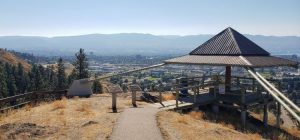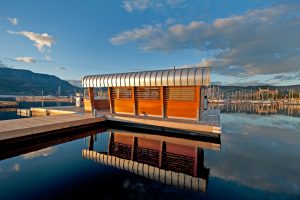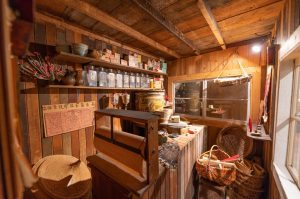Kelowna
originated from the Syilx word "Kelowna," which means "grizzly bear."
Discover the community
Kelowna, located in the Okanagan Valley of British Columbia, Canada has a history rooted in the presence of the indigenous Syilx people. Settlers arrived in the late 19th century, and Kelowna was officially incorporated in 1905. The city's early economy centered on agriculture, particularly fruit orchards and vineyards which played a vital role in its development. The mid-20th century saw the development of the Bennett Dam, enhancing irrigation and fostering agricultural growth. Kelowna experienced significant population growth, thriving into an urban center with a diverse economy, becoming a popular destination for retirees and tourists for the stunning landscapes, including Okanagan Lake and the surrounding mountains. The city's economy diversified, with a focus on technology, tourism, and services. Today, Kelowna is known for its thriving tech sector, wine industry, and as a picturesque destination.
Kelowna offers a diverse range of activities and attractions. Visitors can enjoy the pristine waters of Okanagan Lake through swimming, kayaking, or paddleboarding. Wine enthusiasts can embark on tours of the region's renowned wineries and vineyards. Outdoor enthusiasts can explore the scenic trails of Knox Mountain Park or venture to the historic Myra Canyon Trestles for hiking or biking. The city's Cultural District showcases art galleries, museums, and theaters. Local farmers' markets offer fresh produce and artisanal goods. Golf courses, water sports on the lake, floating the Penticton Channel, and winter activities at Big White Ski Resort add to the excitement
Public Education in Kelowna
The School District 23 is the 5th largest district in BC with approximately 24,000 students. 46 schools serve 180,000 citizens living in 4 municipalities - Peachland, West Kelowna, Kelowna, Lake Country and the Regional District of Central Okanagan.
Elementary
- Ellison Elementary
- North Glenmore Elementary
- Watson Road Elementary
- Pearson Elementary
- Rutland Elementary
- Black Mountain Elementary
- South Rutland Elementary
- Belgo Elementary
- Quigley Elementary
- Springvalley Elementary
- Bankhead Elementary
- A.S. Matheson Elementary
- Raymer Elementary
- Casorso Elementary
- South Kelowna Elementary
- Dorothea Walker Elementary
- Anne McClymont Elementary
- Chute Lake Elementary
Middle Schools
- Dr. Knox Middle
- Rutland Middle
- Springvalley Middle
- KLO Middle
- Canyon Falls Middle
Secondary Schools
- Rutland Secondary
- Kelowna Secondary
- Okanagan Mission Secondary
Private Education
Access to private education and specialty sports academies are a large reason why people choose the Okanagan as their next home.
- Aberdeen Hall (K - 12)
- Kelowna Christian (K - 12)
- Immaculata Catholic (8 -12)
- Heritage Christian (Pre-K - 12)
- Okanagan Christian (Pre-K - 12)
- Rink Hockey Academy
- Studio9 School of the Arts (K - 12)
- Our Lady of Lourdes (K - 7)
- St Joseph Catholic Elementary (K - 7)
- Willowstone Academy - First Lutheran (Pre-K - 9)
- Okanagan Montessori (Ages 6 - 12)








